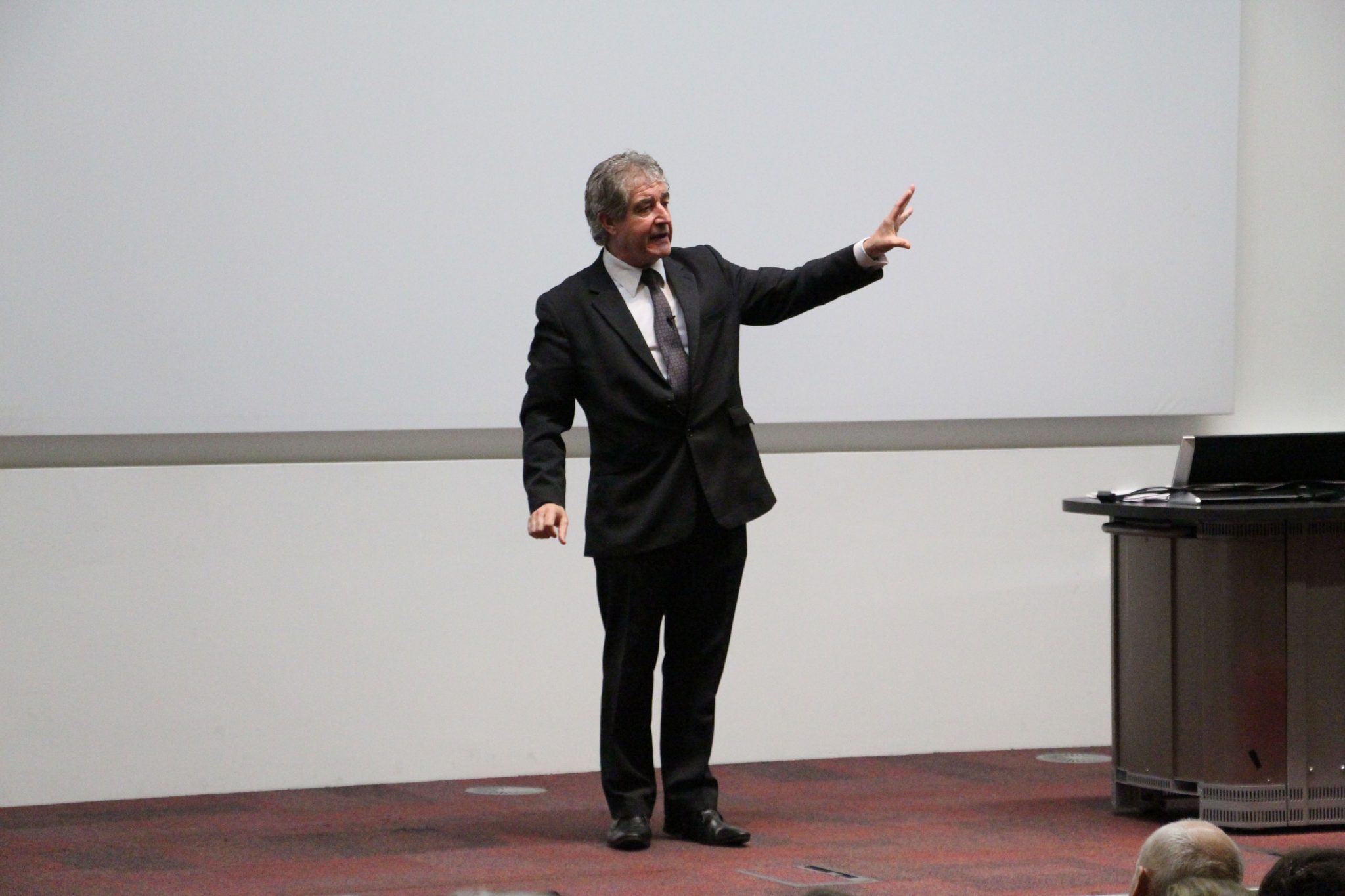We were pleased to welcome Tony Juniper, the world famous sustainability and environmental advisor, to give this year’s annual DICE lecture. Held in the University of Kent’s largest lecture theatre in Woolf College, Tony’s talk was entitled ‘Why ecology and economy must embrace’, a particularly pertinent topic considering the increasingly competitive focus of global governments on boosting economic growth whatever the cost. His talk explored whether or not it was possible to run an expanding economy while keeping its impacts within safe boundaries, or whether the current approach is destined to destroy itself.
Juniper began by stating that we cannot doubt the fact that the now dominant economic system is unsustainable. It has contributed to the breaching of several planetary boundaries, in relation to climate change, biodiversity loss and nutrient enrichment. As the negative consequences of this economic growth escalates, what to do in response becomes an ever-more vital and urgent question. Juniper argued that pressure must be applied to investors and asset managers, so that they adopt strategies that lead to more positive impacts other than solely focusing on increasing shareholder value. But changing an attitude of enslavement to the bottom line requires official policies to be put into place.
When it comes to what these policies might consist of, Juniper suggested that they should be focused on the measurement, reporting and management of ‘externalities’, the off-balance-sheet impacts caused by economic activity, including increasingly well-documented environmental stresses. These negative externalities are effectively the public costs that come from the pursuit of private profit. Quantifying these thus-far hidden costs is not straightforward, but it is vital if we are to show which companies are actually adding value to society and reveal those that are not. There is a dark irony that many companies do not measure the externalities yet have whole teams devoted to risk. One conclusion was that businesses need to move on from seeing individual profit as their sole purpose and for more policy-based tools to move them in that direction. This should embrace a range of approaches, including the tax system: shifting levies from income to waste and pollution for example.
Juniper finished with a sober warning. The financial and business organisations so focused on their bottom lines must respond to what the science says. If, in pursuit of their individual vested interests the entire system upon which they depend is undermined, then any short-term strategies they’ve adopted will not just be externalities picked up by society, but will pave a way toward their demise too.
We either create an ecologically sustainable version of capitalism, or we wait for the consequences to precipitate the collapse of the old order.
Report by James Kloda
Photos from this event can be found on our Facebook page.

